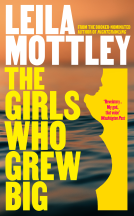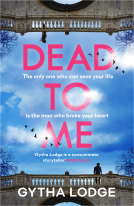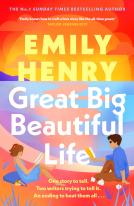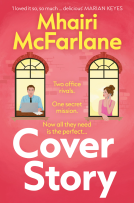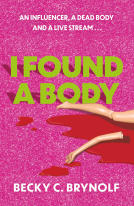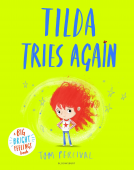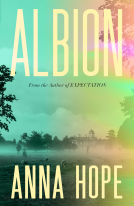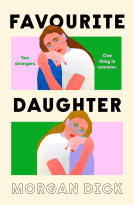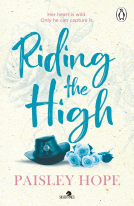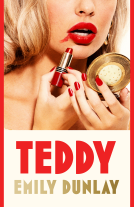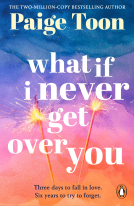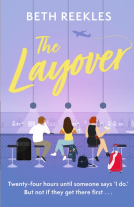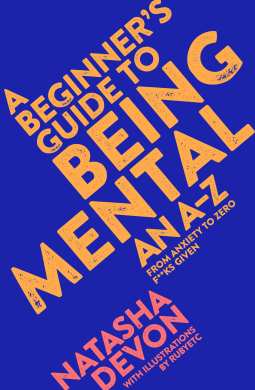
A Beginner's Guide to Being Mental
An A-Z
by Natasha Devon
This title was previously available on NetGalley and is now archived.
Send NetGalley books directly to your Kindle or Kindle app
1
To read on a Kindle or Kindle app, please add kindle@netgalley.com as an approved email address to receive files in your Amazon account. Click here for step-by-step instructions.
2
Also find your Kindle email address within your Amazon account, and enter it here.
Pub Date 17 May 2018 | Archive Date 20 Jun 2018
Pan Macmillan | Bluebird
Talking about this book? Use #BeMental #NetGalley. More hashtag tips!
Description
A comprehensive guide to mental health from one of the UK's foremost experts. An A-Z from Anxiety to Zero F**ks Given.
‘Am I normal?’
‘What’s an anxiety disorder?’
‘Does therapy work?’
These are just a few of the questions Natasha Devon is asked as she travels the UK campaigning for better mental health awareness and provision. Here, Natasha calls upon experts in the fields of psychology, neuroscience and anthropology to debunk and demystify the full spectrum of mental health. From A (Anxiety) to Z (Zero F**ks Given – or the art of having high self-esteem) via everything from body image and gender to differentiating ‘sadness’ from ‘depression’.
Statistically, one in three of us will experience symptoms of a mental illness during our lifetimes. Yet all of us have a brain, and so we ALL have mental health – regardless of age, sexuality, race or background. The past few years have seen an explosion in awareness, yet it seems there is still widespread confusion.
A Beginner's Guide to Being Mental is for anyone who wants to have this essential conversation, written as only Natasha - with her combination of expertise, personal experience and humour - knows how.
Advance Praise
'What a book! Insightful and compassionate A Beginner's Guide to Being Mental is a masterpiece on mental health. A must read.' - James O'Brien, journalist and LBC broadcaster.
'What a book! Insightful and compassionate A Beginner's Guide to Being Mental is a masterpiece on mental health. A must read.' - James O'Brien, journalist and LBC broadcaster.
Available Editions
| EDITION | Other Format |
| ISBN | 9781509882229 |
| PRICE | £14.99 (GBP) |
| PAGES | 272 |
Featured Reviews
 Kevin G, Reviewer
Kevin G, Reviewer
Apparently, my reading habits suggest I should read "A Beginner's Guide to Being Mental"... I don't know what to make of that. Does my eclectic mix of sharks, murders, ancient maps, wizards, Scandinavians, engineering guides, historical parodies, and who knows what else suggest I'm a little bit eccentric? Or does it say I'm so normal I'm positively boring and therefore trying to pretend I'm a little bit bonkers in the style of a zany children's TV presenter to make myself more interesting? I have no idea, but the very fact that I started to ponder why I got the recommendation suggests maybe I need to skip to Z in this alphabetical guide and learn about giving zero fucks.
However, this book really should be required reading for everyone irrespective of their own mental health. If anything, I'd say this book is strongest with regard to interacting with other people's mental health. Devon's use of humour is powerful in making a vast and difficult subject accessible without being patronising. Even if you know the area she's discussing it's engaging, so while you may not come away with much additional knowledge you can still follow along and appreciate the writing. If you don't know the topic, you'll get enough info to get by and a starting point to deep dive on things if you really need to know more.
The book is laid out in an A-Z format which may reach a little to give each letter a topic of decent, balanced, coverage but, unlike so many A-Z guides, doesn't strain painfully to run through the final letters of the alphabet and desperate pad a word definition into a paragraph to try and finish the structure. This is an A-Z that reads really well and flows. I'm not a huge fan of the cross-referencing because in truth this is a book to read cover to cover, Sure, for various reasons you may want to jump in at various points, I know there are a few chapters I plan to re-read so I'll be doing exactly that, but for the first read I'd recommend taking it all in. It's a pretty light and breezy book and impressively easy reading given the amount of coverage it offers.
And the coverage of this book is truly where it shines. I mean, I like to think I'm pretty clued up on mental health issues but I came away feeling a lot smarter thanks to this book. What appealed to me most was that Devon remains enjoyably open-minded and non-judgemental. The section on mindfulness is a great example. In short, she takes a rational middle ground between those who think any kind of self-care is new age twaddle and those who think 5 minutes of meditation a day is like a magic spell that solves everything and anything. True, I may just like reading someone taking a similar view as myself, but I really do think so many of these discussions get lost in people taking extreme binary views on a subject.
But, whilst I may feel good about someone telling me I'm right to think that I should take a few minutes to myself if it makes the day pass more easily I'll go back to my earlier point that this book truly excels in how we interact with other people. I realised at various points that I do tend to have some bad habits when interacting with others. Or more accurately, I rely too easily on a one-size-fits-all logic when clearly that is not the reality. Worse, it goes completely against my general rallying cry that we're all different. So yeah, I'm feeling a bit dumb about that.
I'd also say that if anyone only has time to read one chapter in this book they should head straight for U, which is for Unjudgmental Listening. You know when you've thought you were good at something an then find out you've got a lot to learn? Yeah... that's this chapter for me. I frequently get told I'm a good listener, it's my thing, I'm the listening one. I came to this chapter expecting to just nod along wisely, and smugly. And the more I read the more I realised I can seriously upgrade my listening skills! Or more accurately, I can upgrade my communication skills. I can be happy my current skillset generally works, but I realise with a bit of effort I can do better. Also, this chapter made me want a Duck Chair - which means nothing until you read the chapter, but you should. Every household should have a Duck Chair. Even if you live alone and never have company over, get a Duck Chair and enjoy. It really is a wonderful thing.
All in all, read this book! The very title alone should tell you that mental health doesn't need to be boring, that you can laugh about things (in the right way at least), and this isn't just a sluggish academic study wrapped in a glossy cover to try and book a slot on Good Morning Britain or something. This is a genuinely informative book regarding mental health and it's presented in a wonderful format. Mental health should be a more open topic, and this book is a wonderful conversation starter. it doesn't matter if you or someone you care for are dealing with mental illness, or if you want to read up and realise you're far more normal than you feel some days, this is the book for you. Get reading!
I received A Beginner's Guide to Being Mental from Pan Macmillan in exchange for an honest review.
I suspect many people like myself, who have had to confront mental health issues at some stage in our lives, will recognise the way in which tackling our problems can force us to develop a broader understanding of how human thoughts, feelings, physical needs and interpersonal relationships function, and what it means when things go wrong. A Beginner’s Guide to Being Mental takes that basic package of insight, adds a ton of expertise from author Natasha Devon’s career as a mental health educator, mixes in additional knowledge from mental health professionals and people with lived experience, and packages it into a concise, accessible read. The result, while not a traditional self-help tool (or, obviously, a substitute for medical support), is an invaluable collection of wisdom and demystification on a subject where straightforward information can still be hard to come by.
As one should expect from the title, A Beginner’s Guide to Being Mental organises its material in an A to Z format, with one topic per letter. This is a cute tactic, although it leads to a couple of contrived chapter names, including the very unfortunate choice to name the self-harm chapter “Just Attention Seeking” and cross reference it using this stereotyped phrase in several other chapters. While the J chapter itself addresses the misconceptions of this phrase straight away, I still found it uncomfortable to have it peppered throughout the book, especially when so much care seems to have been taken elsewhere to avoid unnecessarily harmful language and content.
Devon covers a lot of ground within her twenty-six chapters, addressing common illnesses and symptoms, the influence of external factors like youth and gender, and the kinds of treatment available (including both medical services like drugs and therapy as well as different forms of self-care). She also covers some UK specific ground about accessing mental health services, and is open about the inadequacies and gaps in the current NHS system, and her experiences as a government advisor on mental health. I apparently missed all coverage of her eleven months in the post while I was abroad, but this might not be news to everyone – and it probably won’t be news to most of my readers that the Conservative government were less than excellent about using Devon’s considerable expertise to genuinely improve the system.
One side effect of the A to Z format is that it frontloads Devon’s personal experiences with mental illness (anxiety and eating disorders), strengthening the feeling that this book is from someone who “gets it” from multiple angles. The chatty, informal style also helps, and makes this a readable and at times very funny book. At the same time, A Beginner’s Guide to Being Mental feels carefully written (“J” chapter name aside) and it’s clear that a lot of thought has gone into the content. Personal experiences are recounted where it may overcome taboo or help a reader to feel less alone, but the text avoids anecdotes that could be voyeuristic or, in the case of self-harm behaviours and eating disorders, contribute to “competitiveness” among those who struggle with these conditions. There is one section in an early chapter with some unpleasant medical details, and potentially triggering content about Devon’s experiences with bulimia, which is given a clear content warning; otherwise, this book should be accessible to anyone not in a state of immediate crisis.
To further sweeten the deal, A Beginner’s Guide to Being Mental is illustrated by Rubyetc, who I believe is literally the most relateable artist ever (certainly the most relateable artist on my Twitter feed in 2018). I am strongly considering buying a physical copy of this book when it is released on the strength of the illustrations alone – and, of course, because I think this is a very important and timely book that I would like to be able to pass on to other people in my life.
 Gemma J, Educator
Gemma J, Educator
I really enjoyed this book. the style made it easily accessible and was great to dip in and out of. Working in a school environment i was aware of many of the terms and conditions explored in the book. a really good introduction to mental health, in a way that didn't feel patronizing. will use it for reference in future.
 Christina C, Reviewer
Christina C, Reviewer
I received a copy of this book via Netgalley in exchange for an honest review. This book covers Mental Health issues and divides up the topics A-Z. I enjoyed this format as it broke the subject up and made it easier to read. This format also means that it is easy to dip in and out of the book or skip sections which might be triggering or simply of no interest or relevance. I also enjoyed the cartoons scattered throughout the book. There is a lot of useful information contained within the book but there was just something about the authors voice that I didn’t like which spoilt the book for me.
A beginner’s guide to being mental an A-Z a four-star read that will make you think. I picked this book up not knowing what to expect, I am glad I did as it was a great read, the set up was well plotted and it gave you a glimpse into the world of mental health without getting you so deep that you can’t get back out of the rabbit hole. The lay out of the book was very clear and easy to go back to if something stuck in your head, it also has great references and guides to go to for more information. This is one of those books that I will be asking my local libraries to pick up as it’s a great guide, its got the information you need but it also has some light-hearted ness thrown in, I know you shouldn’t take mental health with a light heart as it’s a serious subject, but this makes the subject much more plateable and manageable breaking things down to layman’s terms. If you have mental health problems or you know someone with mental health problems, then you will find something in this book to help you.
Thank you to netgalley and the publishers for this arc in exchange for my honest review.
This was an interesting read which I drew out over a few weeks as it’s in depth. It wasn’t tedious at all and very open and honest and I’m sure plenty of readers will identify with aspects of the chapters and say ‘yes that’s me!’
Brilliantly written and plenty that can apply to colleagues and friends who suffer with anxiety and other ‘hidden’ issues.
 Catherine R, Media/Journalist
Catherine R, Media/Journalist
As humans we are all capable of talking about our physical health. If we stub our toe, if we fall and graze our knees, if we break a bone; we have something to show others to say "look, this hurts". It's a lot trickier if the part that hurts is going on inside your head. I am sure I'm not the only person who has turned to Dr Google during times of stress, anxiety and depression but that can sometimes lead you down a confusing and conflicting path. This book has covered most questions you would ask Google about your mental health. It's well researched, easy to navigate through the A-Z sections and the illustrations from Ruby Elliot are spot on. This book should be available on prescription and should be given to high school children, because many adults who suffer with a mental illness (myself included) first experienced symptoms in their teens. Lets start the conversations around mental health earlier to help break the stigma.
 Reviewer 416886
Reviewer 416886
I think it goes without saying that a book about mental health is going to wind up with one of my famous (or is that infamous!) trigger warnings but as someone whose brain can get fairly trigger happy I didn’t have any problems while reading this one myself. However, having said that, I’m not you so please be aware and keep yourself safe if you are triggered while reading.
Trigger warnings include mental health (duh!), self-harm, suicide, addiction and grief.
This is one of the best books about mental health that I’ve read, and I’ve read plenty. What sets it apart is its author, Natasha Devon, who I’ll admit I’d never heard of prior to reading this book but now feels like someone I could be friends with. Natasha is upfront about her own experiences, writes in a down to earth conversational tone and is somehow able to simplify and explain difficult topics without dumbing them down. Natasha’s aim is to present “a comprehensive yet easy-to-understand overview” and she nails it!
While I’ve been there done that on the mental health merry-go-round personally and even picked up my own psychology degree from a Cornflakes box along the way I gained new insights, knowledge and understanding while reading this book. I often find books explaining mental health to be quite dry and one of my main whinges at university was the uncanny ability of some authors to transform fascinating topics into insomnia cures. I enjoyed reading this book so much though that I wanted to start reading it again as soon as I finished it, partly because I like ‘listening’ to Natasha talk about mental health and partly because I wanted to revisit all of my aha! moments.
I particularly admired Natasha’s ability to weave her own experiences and those of people she’s met along the way with facts (including references to make people like me happy) and insights gained through her work advocating for young people. It’s a balancing act that can result in some spectacular falls when authors incorporate their personal experiences in a book about mental health. Too often I’ve read books where it becomes either a dramatic sob story that takes your attention away from the helpful information that’s hidden somewhere amongst the tissues or a holier than thou ‘I have all the answers and although I’m better than you, I will impart some of my wisdom to you. Wow, don’t you resemble an ant as I look down my nose at you from the heights of my ivory tower’ attitude. Natasha did not fall off the tightrope once.
She was able to give enough information to let you know that she gets it, show empathy so you know that not only does she get it but she also gives a damn and does this amazing thing where she can talk to you about topics that are beyond difficult to live with but she leaves you with a feeling of hope. She speaks to, not at or down to, the reader and while she is direct and leaves no room for questions marks over her point of view (I intend those as compliments, not criticisms), she’s also sensitive, empathetic and funny. She comes across as someone that I would have been able to confide in as a young person and as an old(er) person I feel like she’s someone I’d want to chat with over a cuppa.
Oh, and before you get your politically correct knickers in a twist about the book’s title you should probably know that Natasha does explain the ‘mental’ thing but better than I could so here it is in her (ARC) words …
“The most important thing to acknowledge before we begin is this: I am mental. I am mental according to the most common understanding of the term, in that I have a mental illness. I am also mental in the sense that I am an intellectual and emotional being, in possession of a brain. To have a mind is to be ‘mental’. And that, reader, means that you are mental, too.”
You should probably also know that the subjects aren’t always found under the letter of the alphabet that you’d expect. For example, self-harm lives in the J chapter, as in Just Attention Seeking, but trust me, your pitchforks are not required. This makes complete sense when you read the chapter. Take it from someone who has self-harmed; if pitchforks were required here I’d be handing them out personally but Natasha deals with this topic with the same amount of sensitivity, insight and wisdom as she does with the rest of the alphabet.
I want to ask where Natasha was when I was in high school, knowing I would have benefited greatly from anything she had to say but as I’m close to her in age and across the world that’s kind of a moot point. However I am greatly encouraged that there are Natashas in the world speaking to, and on behalf of, young people about mental health.
I do have a few comments about my personal experience in Australia versus what’s described in this book about the UK. I was gobsmacked that patients only get an average of 6 minutes for a GP appointment. It made me feel so lucky that my GP has 15 minute appointments as standard and 30 minute ones available if you have a list of a bazillion things to discuss or one tricky topic. I also feel even more appreciative that I have two of the most wonderful GP’s on the planet who understand mental health conditions and who consistently go way above and beyond when it comes to looking out for my best interests.
I was absolutely appalled to read about the usual waiting times for people in the UK to be able to access mental health services. Again, my appreciation level for my equally above and beyond awesome psychologist who I may sometimes refer to as Sunshine [insert their first name here] has skyrocketed, even though I didn’t think that was possible.
Okay, so maybe this isn’t as much a traditional book review as it is me telling you the feeling I get from the author but I wonder in this instance if that’s just as important. You can say all of the right things but no one is going to want to listen to you if you’re obnoxious or you have the facts right but can’t back it up with experience or at least some compassion.
What was refreshing in Natasha’s approach was her humour. I find, probably like most people, that a good dose of humour can make even the most difficult topics easier to deal with and this book was no exception. I particularly loved the cute little illustrations by Ruby Elliott that accompanied some of the chapters and only wish there were more of them.
I am struggling to tell you who I’d recommend this book for because ‘everyone’ seems like a cop out so I’ll just tell you some groups of people that came to mind as I was reading: young people, parents, teachers, anyone with a mental illness, anyone supporting anyone with a mental illness, anyone who works in a professional capacity with young people and/or those with mental illnesses, anyone who wants to be a better friend, government and/or political types who make decisions about how money for mental health is allocated, anyone who has influence in any form of media, and anyone who wants to be a better person in general. So, yeah, everyone!
While the chapters can be read in any order I’d highly recommend you read it straight through first. I highlighted so many passages but I am having trouble picking out a favourite because they’re all so damn good. Instead I’ll tell you my favourite word of the book: cheesed-off-ness. I came across it a week ago and it is still making me smile each time I think of it. I’m also quite partial to any book that includes any of the following: shysters, wodge, almighty s**t-show, f**kwittery, bogus, skew-whiff, raison d’être.
Thank you so much to NetGalley and Pan Macmillan for the opportunity to discover this awesomeness. Natasha is definitely one of the good boxes. I know I’m going to get more out of it when the inevitable reread happens. I’m going to be recommending this book to my doctors and psychologist, along with random people who cross my path. I leave this book (temporarily - I know I’ll be back soon!) wanting to be a better person, advocate, listener and support person, and feeling hopeful and inspired.
